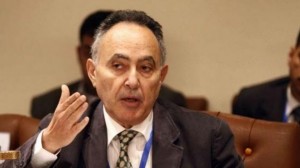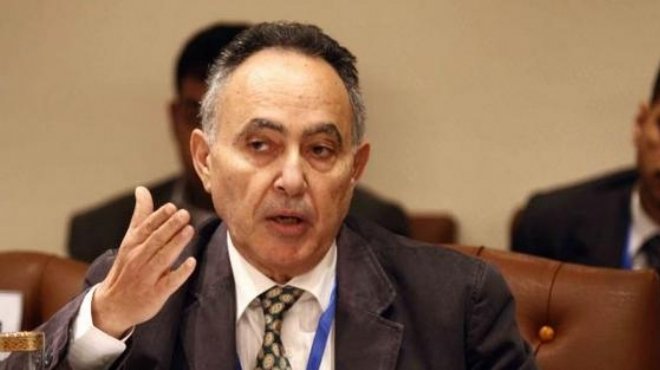 To mark the release of its report on the right of peaceful assembly, the Euro-Mediterranean Human Rights Network organized a special seminar on December 8 at the European Parliament in Brussels to discuss the challenges and violations facing the right of peaceful assembly in several countries, including Turkey, Morocco, and Egypt.
To mark the release of its report on the right of peaceful assembly, the Euro-Mediterranean Human Rights Network organized a special seminar on December 8 at the European Parliament in Brussels to discuss the challenges and violations facing the right of peaceful assembly in several countries, including Turkey, Morocco, and Egypt.
Bahey eldin Hassan, the director of the Cairo Institute for Human Rights Studies, gave a talk at the session titled, “In Egypt demonstrating is more serious than mass murder.” He noted that participating in a peaceful demonstration in Egypt now carries several risks, whether demonstrators are Islamists or not. These risks include arbitrary killing, for which the perpetrators are acquitted or not held accountable, as was demonstrated in the trial of Mubarak, his interior minister, and six of his police aides. In other cases, demonstrators may be sentenced to prison for 3 to 15 years, as was the case with Ahmed Maher and Alaa Abd al-Fattah—just two of innumerable examples. Rights organizations that defend the rights of killed or imprisoned demonstrators are themselves punished with media smear campaigns, the prosecution of their staff, and threats of closure, confiscation, and sometimes death.
In his talk, Hassan cautioned that the coming elections, if held in the current political and security climate and in the present legal and judicial context, will be neither free nor fair. Some candidates and their supporters may face similar fates to protesters during their electoral campaigns. He noted that the unlimited power of security bodies has eroded the reputation of the Egyptian judicial system, despite its history as one of the best judicial systems in the region.
Hassan named the ongoing impunity in Egypt, the confiscation of the right of expression and peaceful assembly through liberty-depriving penalties, the crackdown on civil society in all its forms, and the unrestricted power of the security apparatus as the primary reasons for a climate of extremism in both Islamist and secular circles. This may spur some to become involved in retaliatory and terrorist organizations and actions, which explains the growing frequency of terrorist attacks in the country as well as the increasing incidents of violence and political retaliation.
In his speech, Bahey Eldin Hassan called for the Egyptian government to review the free assembly (demonstration) law, and to ensure it is consistent with the Egyptian constitution and international standards, taking in consideration the recommendations that Egypt received during its recent UPR, which was held at the UNHRC’s headquarters in 5 November 2014. He also called upon the government to take the initiative to hold a comprehensive dialogue with all political parties and civil society organizations concerning the challenges, including terror, facing Egypt and to find ways of reforming the policies that exacerbate them.
Share this Post

